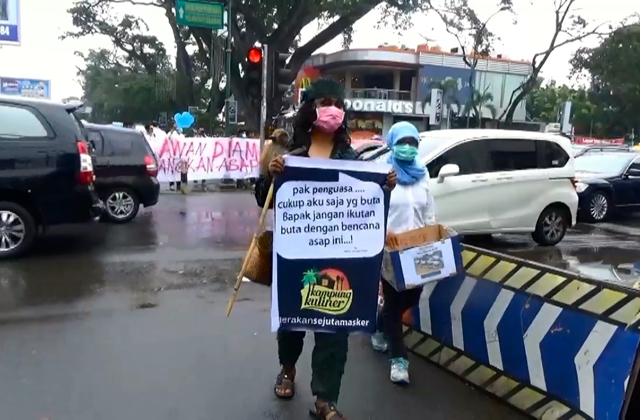- Indonesia and Malaysia are finalizing details on establishing the Council of Palm Oil Producer Countries.
- The new intergovernmental association will look to counter the wave of no-deforestation commitments sweeping the industry as a result of NGO and consumer pressure, a senior minister said.
- A move to roll back zero-deforestation would be tricky for the major firms that have adopted the pledges.
The international effort to contain wildfires in Indonesia continued on Thursday as a senior government minister indicated the country would look to relax no-deforestation commitments taken up by palm oil companies in order to maintain its sovereignty and boost the fortunes of its smallholders.
The number of hotspots in Ogan Komering Ilir, which has seen some of the strongest fires this week, declined to nine on Thursday, according to Indonesia’s disaster management agency. Air assets from Australia, Malaysia and Singapore have joined Indonesian aircraft in dropping more than half a million liters of water on the South Sumatra district.
As attention remains focused on the more immediate priority of containing peatland fires, the governments of the world’s two largest palm oil producing countries, Malaysia and Indonesia, are preparing greater cooperation on palm oil production.
Bloomberg View columnist Adam Minter writes that in terms of stopping the fires, reforms by Indonesia can only go so far if two of the three largest importers, China and India, continue to prioritize price at the expense of sustainability.
“Many proposals to fix the problem target the palm oil supply chain — from farmers and refiners, to the bankers and politicians who fund and license companies. That’s crucial. But to be successful, such efforts have to address demand as well,” Minter writes today.
However, longer-term efforts to boost sustainability certification, an important tool in establishing palm oil provenance, could potentially be undermined if the Indonesian government succeeds in pressuring big agribusiness to abandon “no-deforestation” pledges.
“We are the biggest palm oil producer,” Indonesia’s chief natural resources minister Rizal Ramli said on Tuesday. “Why [should] the consumers from the developed countries set the standard for us as they want?”
Ramli’s comments come as Indonesia and Malaysia finalize details on establishing the Council of Palm Oil Producer Countries, a new intergovernmental association that, if the minister and other elements in the Indonesian government have their way, will counter the wave of no-deforestation commitments sweeping the industry as a result of NGO and consumer pressure.
In line with its mandate to improve the fortunes of “smallholders” – a term used to reference a vast ecosystem of landowners ranging from the tiny to the medium-sized – the council will look to publish new standards to boost their capacity. Indonesia’s smaller farmers often lack capital needed to gain access to high-quality seeds and fertilizer and could face term pressure from a plan by India to invest $1.5 billion on new palm oil production to lessen its import bill.
A move to roll back zero-deforestation would be tricky for the major firms that adopted the pledges, such as Asia Pulp & Paper, Cargill and Wilmar. It would also raise new questions for industry certification schemes run by organizations such as the Roundtable on Sustainable Palm Oil and the newer Indonesian Sustainable Palm Oil Foundation.

A previous version of this article said the Council of Palm Oil Producer Countries will counter no-deforestation commitments by palm oil companies. The matter actually appears to be uncertain.